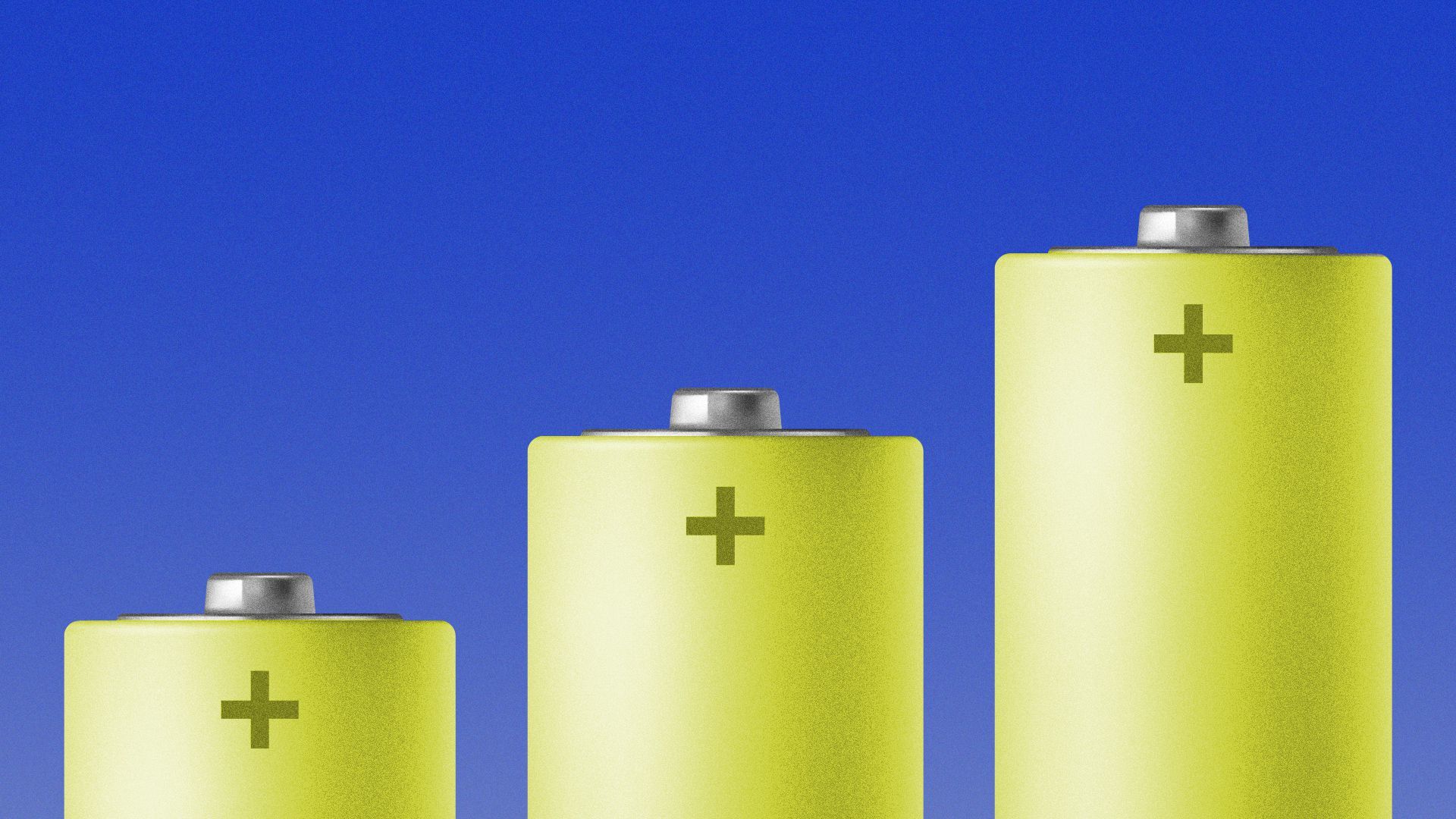

Ford's answer to EV supply chain hell: Cheaper batteries
source link: https://www.axios.com/2022/07/22/ford-lithium-iron-phosphate-batteries
Go to the source link to view the article. You can view the picture content, updated content and better typesetting reading experience. If the link is broken, please click the button below to view the snapshot at that time.

Ford's answer to EV supply chain hell: Cheaper batteries
Illustration: Gabriella Turrisi/Axios
Automotive giant Ford is shoring up its battery supply chain — partly by importing lower-cost, iron-based batteries popular in China — as it sprints to increase electric vehicle production.
Why it matters: Employing cheaper, safer and more durable iron batteries could accelerate demand for mass-market electric vehicles (EVs), and help automakers sidestep nickel and cobalt supply problems that have been driving up EV prices.
The big picture: Carmakers' plans to shift away from gasoline-powered vehicles won't succeed unless they can secure reliable battery supplies. But with raw materials in short supply — and sourced primarily in Asia — the battery race is turning into a fierce geopolitical competition.
Driving the news: Ford said Thursday it had lined up enough batteries to meet its short-term goal of producing 600,000 EVs annually by 2023, up dramatically from the 27,140 battery-powered cars it sold in the U.S. last year.
- The company, which is spending $50 billion to expand its EV lineup, also said it was 70% to its goal of securing enough batteries to produce 2 million EVs annually by 2026.
- Ford announced a slew of supplier deals and partnerships — including contracts to buy raw materials directly from mining companies, as other automakers have done.
Details: One way Ford intends to meet its EV targets: adding a second type of battery chemistry to its lineup called lithium iron phosphate (LFP), alongside its existing nickel cobalt manganese (NCM) chemistry.
- It will initially import LFP battery packs from China's Contemporary Amperex Technology Co., Ltd. (CATL) for its Mustang Mach-E and F-150 Lightning pickup, starting next year.
- But Ford also wants to produce LFP batteries in North America, and plans to open a 40-GWh LFP cell factory by 2026. (That's in addition to three previously announced battery plants in Tennessee and Kentucky.)
Between the lines: Iron and phosphorous are abundant, which is why LFP cells cost at least 30% less than today's nickel- and cobalt-based batteries, Sam Abuelsamid, principal analyst at Guidehouse Insights, explains in Forbes.
- LFP batteries are also more durable, lasting up to 1 million miles, per CATL.
- And they're less likely to catch fire because the chemistry is more stable.
Yes, but: LFP batteries pack 30% less energy than similarly-sized nickel-rich batteries, which translates into shorter driving range.
- This isn't a huge issue in China because buyers there care more about price and durability than driving range.
- But Americans, who aspire to take long road trips, want longer-range EVs capable of going 300 miles or more between charges.
- Instead of installing a larger battery to meet their range expectations, carmakers can squeeze more LFP cells into battery packs by redesigning their module structure, per Abuelsamid.
What to watch: Tesla increasingly uses cobalt-free LFP batteries in its entry-level vehicles, and it's expected Ford and others will too.
- Meanwhile, nickel-based batteries will be used for pricier performance cars.
What they're saying: "We know that the battery material cost is where the war will be won in the short term," said Lisa Drake, vice president of EV industrialization for Ford's Model e division.
Recommend
About Joyk
Aggregate valuable and interesting links.
Joyk means Joy of geeK
